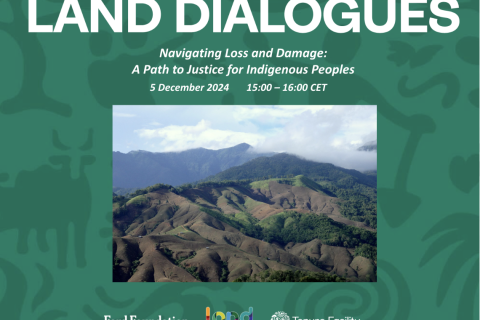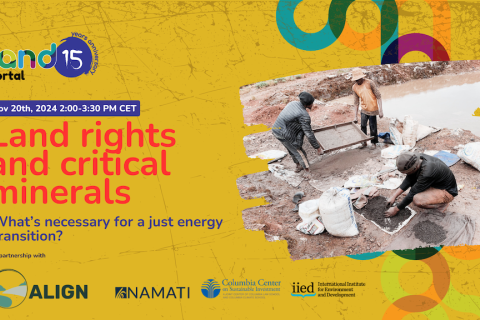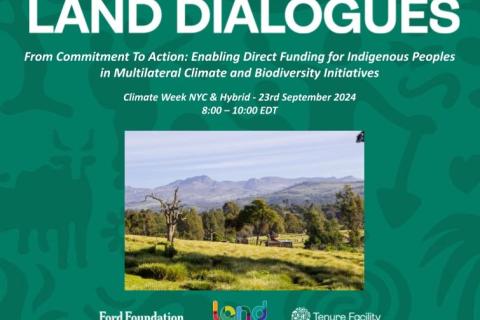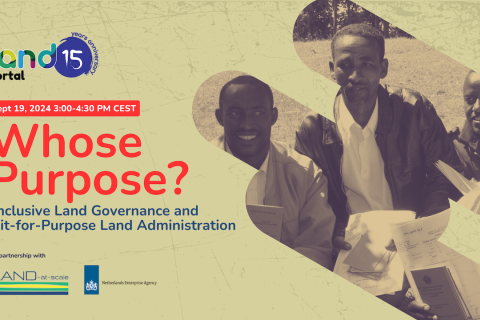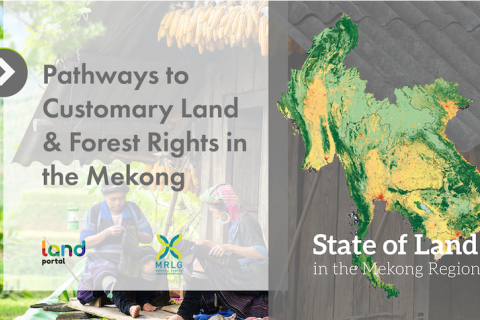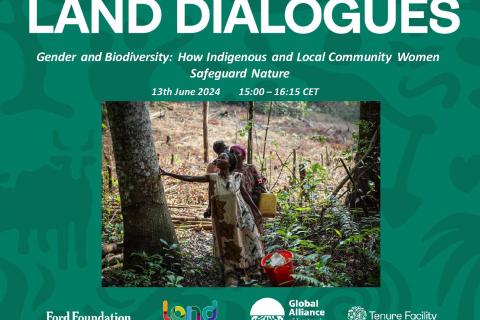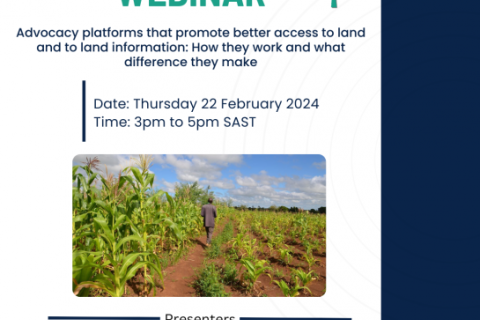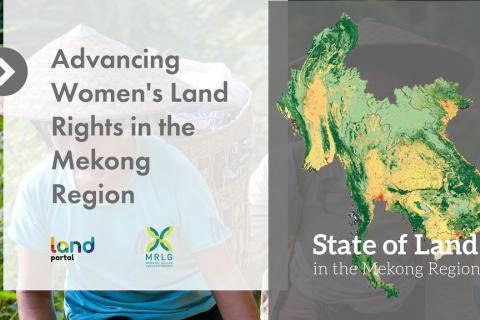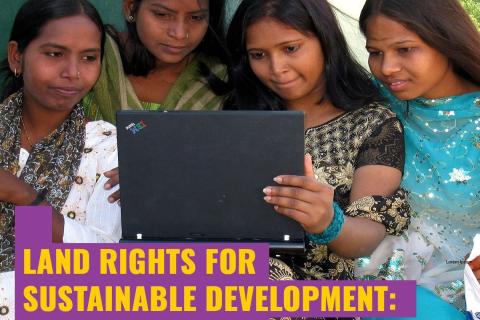Navigating Loss and Damage: A Path to Justice for Indigenous Peoples
5 December 2024, 15:00-16:00 CET
Land rights and critical minerals: what’s necessary for a just energy transition?
From Commitment to Action: Enabling Direct Funding for Indigenous Peoples in Multilateral Climate and Biodiversity Initiatives
Countries had increasingly turned to multilateral funds as a means to drive impactful change.
Inclusive Land Governance and Fit-for-Purpose Land Administration: Whose Purpose?
Pathways to Customary Land & Forest Rights in the Mekong
Gender and Biodiversity : How Indigenous and Local Community Women Safeguard Nature
Indigenous women’s knowledge is rooted in ancestral understanding of the natural world and the accumulation of observations of local phenomena. The most significant aspect of Indigenous women holding and preserving these traditional knowledge is their holistic approach, which encompasses a wide range of domains beyond mere specialization. They possess an intricate understanding of various species, considering their nutritional value, medicinal properties, and ecological roles. This knowledge, passed down through generations, not only enriches their communities but has been crucial for western science. Indigenous women's insights have often informed Western understandings, leading to the development of medicines and a deeper understanding of climate phenomena such as droughts, floods, and biodiversity migration.
Breaking new ground: Insights and stories on the impact of land corruption on discriminated groups in Africa
This webinar will explore this intersection with stories from across the continent. Speakers will show how corruption undermines land equity programs designed to address the concentration of wealth and inequality in the land sector in South Africa, and how corruption exacerbates the historical marginalization of the Nubian community in Kenya, among other examples. Speakers will also explore how governments and civil society can effectively respond to the research findings, with a focus on policies and campaigns that promote accountability and information transparency in land governance.
Leading the Way : How Indigenous Youth Combat Climate Change Through Land Rights
Young Indigenous Peoples are facing unprecedented challenges as they grow up in a world where climate change imperils their community’s cultural heritage and ways of life. In response, many are becoming new leaders in climate activism, championing land rights as a pivotal measure in combating environmental degradation and preserving traditional lifestyles.
uKESA Webinar - Advocacy platforms that promote better access to land and to land information: How they work and what difference they make
The Urban Knowledge Exchange is currently presenting a series of webinars to showcase evidence-based knowledge platforms.
In this fourth webinar we focus on international, multi-dimensional land knowledge and information platforms, and the partnerships that underpin their success.
Women’s Participation in Land Governance in the Mekong: Moving Beyond Quotas to Meaningful Inputs and Influence
Join us in a webinar that will shine light on two groundbreaking reports concerning gender and land governance in the Mekong region. The reports, "Outlook on Gender and Land in the Mekong Region" and "Towards Gender-Equitable Land Policy and Law Making in the Mekong Region," were produced in Phase II of the Mekong Region Land Governance (MRLG) program. This is the first webinar in the series ‘State of Land in the Mekong region.’ This series highlights the evolving environment of land governance in this dynamic region.
When carbon markets go wrong: How to ensure access to remedy for land tenure violations
This webinar will explore what access to remedy might look like for communities in the global carbon market system, with a focus on issues of land and resources tenure. Hearing from communities impacted by carbon markets and experts in grievance mechanism design, the webinar will highlight the key features necessary for accessible, dependable, and credible grievance mechanisms. The discussion will offer critical input to the proposed grievance mechanism for markets established under Article 6.4 of the UNFCCC Paris Agreement.
Land Rights for Sustainable Development - The Role of Data
Having secure land tenure, ensuring people's confidence in accessing, controlling and utilizing their land, is crucial for promoting sustainable land management practices. It also plays a key role in building resilience against the impacts of climate change, including extreme weather events, rising sea levels, and increased desertification due to higher temperatures.

